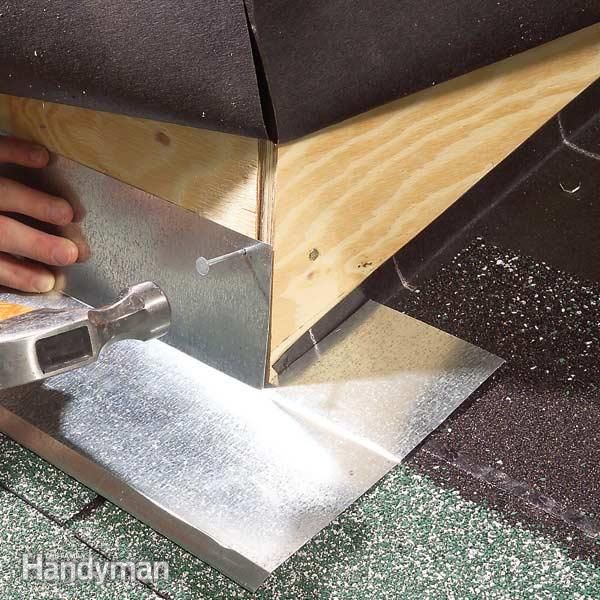Drip edge metal valley flashing dormer chimney and kickout flashing are types of roof flashing that shed water away from the connections between roofs walls chimneys and other building assemblies.
How to use flashing on a roof.
Although roof flashing is occasionally fabricated from plastic roofing felt or rubber it is usually made of rust resistant metal galvanized steel aluminum or copper.
Once even a small section of roofing cement fails you ll have a leak.
Achieving permanent flashing solutions use quality materials.
It is wise to choose flashing components that will have the same degree of longevity as the rest of your roof.
Use the best materials and overlap them in such a way that they shed water.
Use the metal break tool to bend the flashing lengthwise in the middle according to the angle of the roof joint.
It may seem as if a single piece of flashing would offer more protection than many pieces of step flashing.
Traditional roofing is quite simple.
Roof flashing is a thin material usually galvanized steel that professional roofers use to direct water away from critical areas of the roof wherever the roof plane meets a vertical surface like a wall or a dormer.
Using proper flashing components and maintaining penetrations like skylights are critical to the performance of the roof as a system newer technology in flashings and roofing materials not to mention product performance levels has improved greatly in the last 20 years and flashing components need to be consistent with the new roof.
Roof flashing is a material used as a protectant against water leaks or seepage and is typically made of galvanized metal but it can also be in the form of aluminum sheet metal copper or even plastic.
Renew flashing seals by chipping out old caulking and mortar along the edges of the flashing.
Galvanized metal or aluminum is considered the best to use for roof flashing.
4 inches should go up the house wall and 4 inches should go on top of the porch roof shingles.
Most flashing is 8 inches wide.
Continuous flashing against a sidewall is one way to install a roof but it s not the correct way.
Galvanized sheet metal is most common but aluminum and copper find occasional use in specialty situations.
Roofing cement can dry out and crumble away exposing joints to water.
What is roof flashing.



















